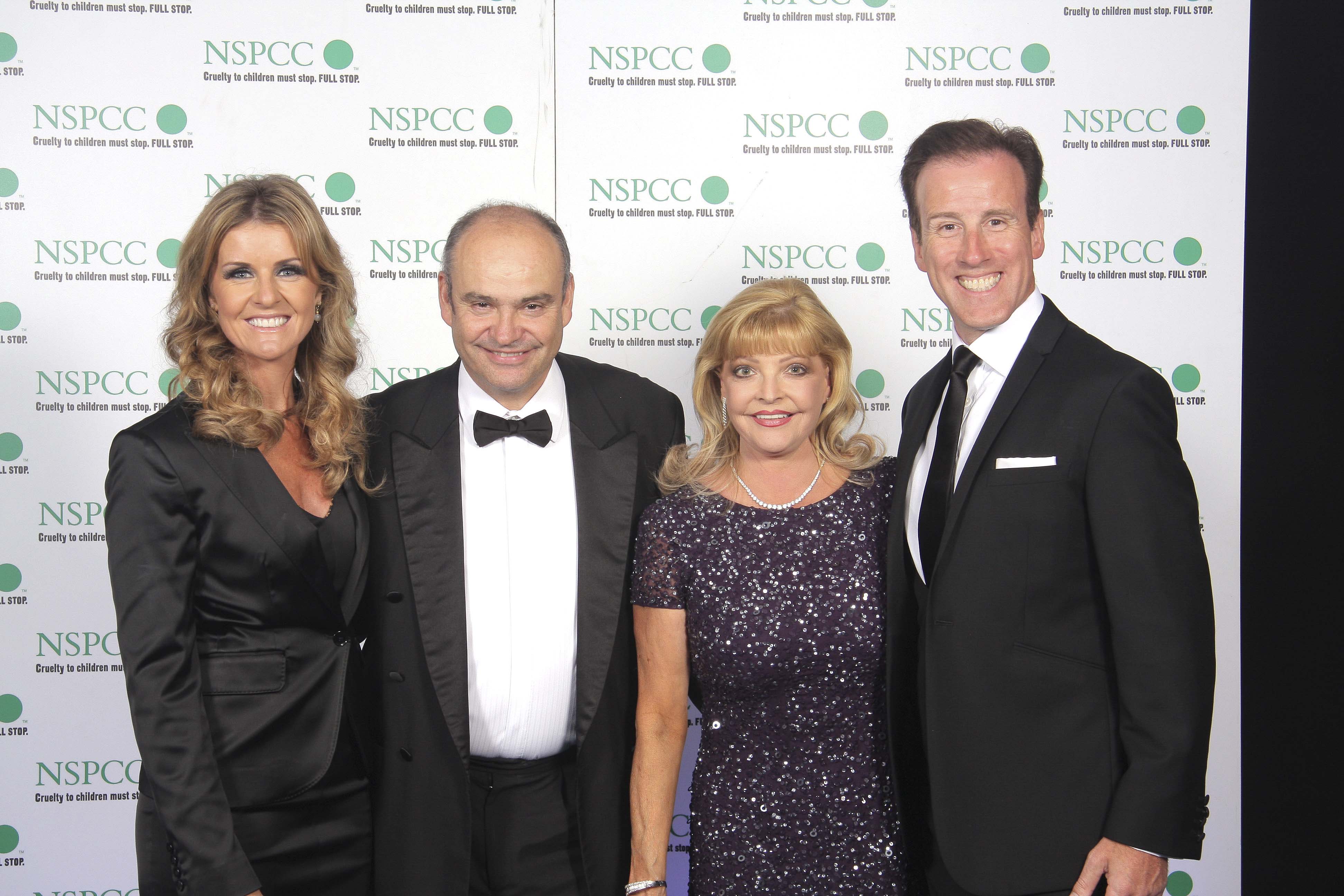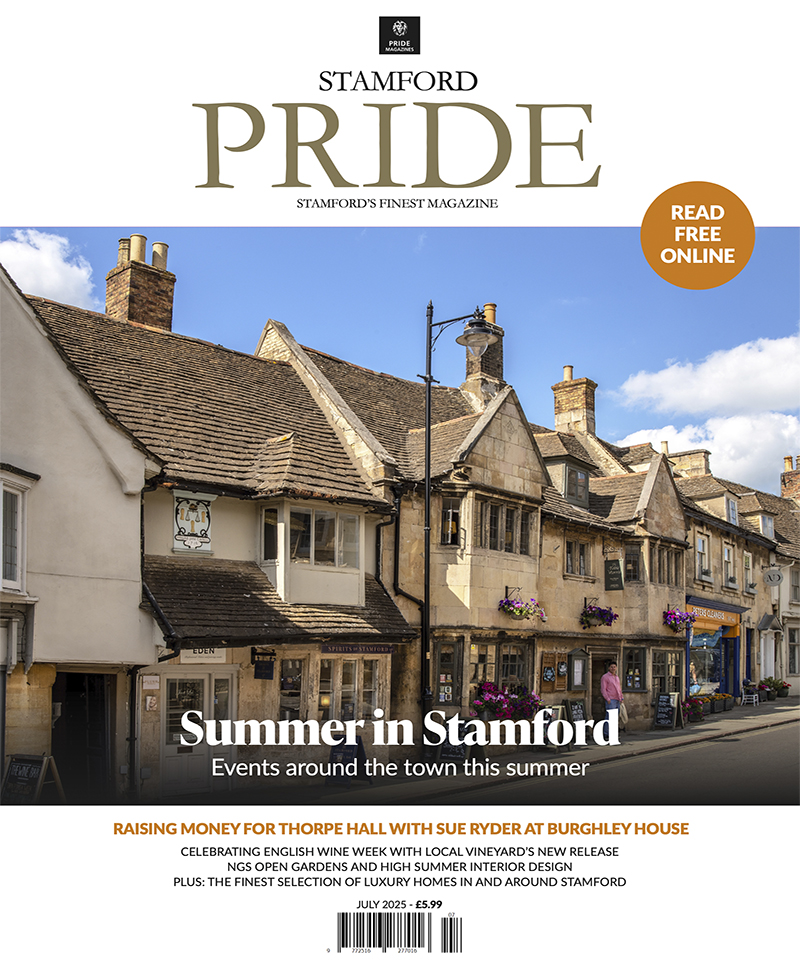
Karl Hick: Building Communities
Athlete; inventor of technology to help in the developing world; socially responsible housebuilder and of course, husband and father. It’d be enough for most people. Not Karl Hick, though, who also launches a new charitable foundation this month…
Karl Hick isn’t satisfied. He’s not satisfied with being one of the area’s most prolific and socially responsible housing developers. He’s not satisfied just being an advisor to the All Party Parliamentary Group on housing policy, regularly meeting various Government ministers including the Chancellor.
He’s not satisfied to be an athlete, competing in this year’s Polish World Masters Athletics Championships in Torun. He’s not satisfied being a chartered accountant, and a qualified chemist… oh, and an engineer working on solutions to bring infrastructure to the developing world. He’s not even satisfied enjoying a regular trip to the Emirates to enjoy a pint with his sons and watch his beloved Arsenal.
No. He’s not content with all of the above, or to simply maintain their charitable activities – supporting, for example, Peterborough’s NSPCC and also the local UTC and various other local causes. He’s about to just launch a whole new charitable foundation, alongside wife Helen, raising awareness of the risk of strokes following their experiences earlier this year. Karl isn’t satisfied and won’t be until the responsibility of housebuilders to balance business with the creation of sustainable communities is reconciled across the industry. It’s a responsibility predicated upon Karl’s experience as a son, as a father and as a husband as we found out recently, when we met him in the very comfortable showhome of his Farriers Reach development.
You’re starting a new charitable foundation, borne out of a recent family illness?
Yes. My wife and I have been married for over 20 years and both work in the business together. Both of us are healthy, both of us are busy. We don’t do ‘being ill.’ In fact I don’t think either of us have ever taken a day off sick in our working lives.
Two and a half months ago though, and from absolutely nowhere Helen suffered a stroke. It was a big bleed, serious and the prognosis wasn’t good. You wouldn’t know as she’s now doing brilliantly. She’s so strong and wouldn’t accept defeat, she has such mental toughness and such a positive attitude. She’s recovering well but it served as a quite horrid warning that a stroke can come from anywhere.
So it was a wake-up call?
Yes. She was no more stressed than you’d expect with a career as a Managing Director in charge of 100-strong team, and her blood pressure was slightly higher than a typical base rate, but she had a bad respiratory virus at the time, which we think was a contributary factor.
What came out of our experiences is a realisation that nobody wants to talk about the subject and that knowledge about pre-stroke care and post-stroke care is really important. We both realised that establishing a foundation would help to raise that awareness. One of the ideas we’re working on is the creation of a website which will allow people to find answers to the kind of questions that we needed answers to.
It was a scary experience for Helen most of all, but for myself too. I’ve married my best friend and seeing her unwell, the idea that she might not survive… just not having her in the house with me whilst she was recovering in hospital was awful.
Home suddenly felt different?
Yes. Home and family are inextricably linked. Both young people and older people alike are facing unique challenges and the housing market ties into all sorts of things from family life, to the economy, to the creation of communities, to our mental health.
How and why?
We need new houses. Specifically we need about 300,000 new houses a year. As a country, we’re building about 230,000 a year, up from about 160,000 six or seven years ago. Property prices are predicated on supply and demand so the more houses we build the lower house prices will be and the easier it’ll be for younger people to get on the property ladder – something that’s less achievable at present.
How has Help to Buy changed the market?
The scheme has come in for a good deal of criticism, but right now about 55% of our market is Help to Buy. Housebuilding keeps the UK’s economy going with associated trades, furnishing retailers and so on. Help to Buy is probably the best use of government cash I’ve ever known, they’re putting money into something that’s actually making money – I can’t think of another occasion that’s happened. It’s supposed to come to an end in 2023, but the government will have to extend or replace it as the scheme is vital for ensuring properties are affordable to younger people, for ensuring there’s sufficient demand to continue building houses and for the economy in general.
What about Brexit – how’s that affecting the market?
It hasn’t helped. Finding skilled workers in the construction sector in the UK is difficult. A lot of supplementary labour comes from the EU and many workers have gone back to their countries of origin.
The prevailing wisdom is that we have to carry out the result of the referendum, and that we can’t change our minds, but I can’t think of anything more democratic or sensible than at least having the option to reassess a situation and change our direction if we deem it necessary. We didn’t know the full implication of the referendum and as a businessman I’ve not always made the right decisions at the time. An ability – and the willingness – to reassess a decision you’ve made is essential in business, and it’s the same with Brexit.
Certainly the effect on the construction labour market makes the country’s housebuilding targets less unachievable. More broadly, it’s disappointing that we don’t embrace the diverse sort of society that immigration begins. It contributes to making us a more well-rounded society and creates broader communities and my mother being Irish illustrates the importance of controlled immigration, otherwise the standard of living for all has to fall, be it cleaners, fruit pickers, care workers or construction workers.
Communities being something you’re keen to create?
Absolutely. Right from being a child growing up, our house was the base that kept our family together. We were brought up where cash was tight but there was lots of love in the house. My parents’ mortgage was the anchor for responsibility and a good work ethic. More broadly we were part of a community, and we looked out for one another. Housebuilders shouldn’t make buildings to sell, they should create just those sort of communities to live in because the home underpins everything in family and community – home is where the start is.
How do you achieve that and how many houses have you built?
I’ve created somewhere between 250 and 300 developments over 30 years, typically about 30 houses each, so around 7,500 homes in my career. Some schemes work better than others and there’s an element of luck as to who moves in, but one of my pleasures is to revisit an existing development from five or ten years ago which sometimes drives my wife and children crazy, but I like to see how the development has evolved into being a community, and I feel proud I have added something to society when I am generally delighted with the outcome.
If you drive through on a Saturday morning you can see kids on bikes playing, people washing cars, neighbours stopping to talk to each other. That’s the measure of a successful development.
A development we created many years ago prevented the closure of a village school and though some people can be NIMBYS – ‘not in my back yard-ers’ when it comes to new housing developments, villages have to grow if they’re to support nearby schools, shops, post offices and pubs. If not, we won’t have villages, we’ll just have large out of town businesses.
Also, without creating new properties, villages will just be outpriced for younger people and they’ll become dormitory places for older residents and I am determined to provide homes for all, and I am especially happy to support young and old who want to make something of themselves and be completely respectful to those people with disabilities, or poor health, that prevent them all doing the same.
As a society we have a responsibility to help people less fortunate than ourselves, but young teachers, nurses, care home workers, construction apprentices, fruit pickers, all need help and the various schemes we work with alongside local authorities, councils, and Government, give many a chance if they have a work ethic, as it is clear they will more than likely repay the mortgage and support themselves and their families, as my Mum and Dad did.
Do challenges in housing just effect younger people?
No. Community is about people, and one of the ironies of living in a time of greater means of communication is the increasing prevalence of isolation. It’s especially true that older people are more isolated.
Previously, different generations of the same family would remain in the same village and the younger generation would look after the older generation. Today – and with no sense of blame implied – we’re a more itinerant society. I’m approaching retirement age and my kids have gone off to London to pursue their own careers.
As a result, fewer older people have their children nearby. Social care is lacking generally in the country, but in particular there’s a gulf between independent living and social care – I guess you’d term that assisted or supported living – where an older person can remain in their home and still have a community around them or at least neighbours looking out for them.
That’s based on your own experiences?
Yes. My parents lived independently but needed additional support. They were back in Newbury Park, Essex where my two brothers and I grew up, but we’d all left the area to pursue careers; I moved to the Peterborough area in the late 1980s, my brother moved to Switzerland, for example and only my younger brother stayed local.
With more people living for longer we can’t rely on existing infrastructure to look after older people, and what we have generally right now is just private provision for domiciliary care or residential homes or care homes which necessitates someone leaving their home, perhaps leaving their spouse.
My own parents were in just that position. When I saw them I’d be looking after them, and at the weekends it was tough as so much to do and their house was too much of a burden.
There’s a broader problem too. The statistics – especially research conducted by the Rowntree Foundation – show that people who are able to live in their own homes delay the onset of Alzheimer’s or Dementia and live around four years longer but only if they are around like minded people who have the time to talk and help each other, and not having the stress of a larger older house which is too big, and a garden that needs a lot of work.
What’s the solution?
We create developments, where it’s possible to do so, with provision for assisted living and with care homes close by. Initially older people whose children have left home can downsize to an easier-to-maintain property, freeing up some equity in the process.
They can therefore live independently and live in a community with similarly-aged people, and with younger people in communities which can look out for one another and we deliver lifestyle living to help make some people’s lives miles better, but I understand it is easy for myself as I have experienced it from both ends, but very rarely do people like my Mum and Dad move to such a community and not say they should have done it years ago, but change is difficult and I wish every day I could have moved my parents to such a community as their lives would have been much better in the latter years.
When it’s needed, external providers can facilitate assisted independent living and if a residential or care home is needed, it’ll be sufficiently close to ensure a spouse can visit. This is the perfect combination ie: independent, assisted, and a care home incorporated within a lifestyle village community, but now always easy to deliver because of the financial institutions reticence to fund schemes like this as the infrastructure up front is expensive.
Creating developments that appeal broadly to housebuyers of all ages is central to that, as is ensuring developments look good, so people value the environment they live in and look after their surroundings and their community.
A home is a very personal thing…?
It’s something you should embrace, you should love it and treat it well. It should be a place you love to be. I was really fond of my first house. It taught me to be sensible with money, and it taught me the importance of family and the responsibility of a work ethic, as like most of us, I only had myself to blame if the mortgage was not paid.
What do people want from a house nowadays?
We produce about 30 different house styles. Stereotypes are made to be broken though and it’s funny that you can design a house for a particular person at a particular time of their lives only to find that the people that gravitate towards that style are very different to the target market you expect which is why life and work are so interesting.
In our part of the world, decent sized gardens are important. They also need to be technically sound with good wi-fi. Cable TV is another must-have, and latterly people expect to have somewhere to charge an electric car and that will be more and more prevalent as we all encompass climate change.
And sustainability?
Sustainability is a big thing, too. People are reluctant to have too many plastics in the building of their home, and they’re keen to have good energy efficiency. Interestingly though, the current standard of Code Six [an environmental assessment method for rating and certifying the performance of new homes, first introduced in 2006] is too efficient in terms of heat retention. A lot of people find houses too ‘airtight’ and end up opening windows, which rather defeats the point of the effort!
The current building regulations are just about right and the politicians need to concentrate on the Pre 80’s properties as if climate change is to be taken seriously, tackling this area and ensuring minimum standards will have massive benefits to the carbon emissions, and concentrating on planting trees and bushes at a much greater level than they are taken down will balance the CO₂ issue, so our children and their children can enjoy the future and help keep polar bears, and precious wildlife alive, and still allow economic progress.
How does the business work?
We’ve around 100 people in the office, and it takes around five or six months to create one a home, but some projects take five to 10 years to get to that point given the massive regulatory requirements, and over the 30 years running Allisons and Larkfleet I have seen just about everything from rehousing badgers that held up a project for three years, to great crested newts that have stopped a project forever, and these areas are important but in life a balance is always required to balance everyone’s interests, and to be fair that is the general outcome if you have the time to do so.
Many smaller builders unfortunately go under within this process as time is something they don’t have in abundance. We build and sell around three or four on a typical site a month, including affordable, so typically we’re on site for two years. I worked in London for Allison homes and was based near Chigwell and Romford before they relocated me to Spalding where I became part of Allison Homes as Financial Director.
I completed a management buyout in 1990 and then I sold Allison homes in 2001, but it was like selling a son and I missed it greatly. I had started Larkfleet Homes in 1998 and eventually brought the Allison name back and now run the two brands concurrently, Larkfleet operating around the A15 corridor and south, and Allison working predominantly north of the A15. At the moment we’ve around 10 developments, and we try to look about five years into the future for potential new developments as that is a realistic timescale.
You’re working with the government to advise on housing policy?
Housing mainly, too. I represent medium sized housebuilders on the All Party Parliamentary Group on housing and meet various Government MPs and Ministers regularly trying to help the smaller players to deliver more choice in the market. Recently I’ve completed a big piece of research for the Treasury Committee on Migration of Labour into the UK Post-Brexit as the country will need this to deliver as we can’t without this.
And somehow find time to pursue other projects?
Well I have a chemistry degree in my first real academic interest, so I’ve also founded a project called Solar Steam, which is a containerised unit and a static unit which can provide remote communities with electricity via solar power and desalinisation and filtration to provide clean water and energy to help communities survive.
I’ve travelled to Kenya’s Masai Mara to try see how we can help to begin delivering the units. They may be manufactured closer to home in Peterborough, with both fixed and containerised units, so there’s potential applications in areas where grid unlikely.
I’ve also created a property design for flood risk areas which rises electronically in the event of flooding to protect it occupants. That will make it easier to obtain planning permission for developments in areas where there’s significant flood risk and houses can be used.
Just to make the rest of us feel truly inadequate you’re also an athlete?
Ha! Yes, I’ve always been into athletics and I competed in Poland’s World Athletics Championship in the 3,000 metre indoor and cross-country events recently and will be competing in the European Masters Championships in Venice in September in the 5,000m. I go running with our new dog, Hugo who has become the company’s mascot, and race most weeks but I also ski and play golf. I love watching sport too and follow F1, cricket, and most sports.
And football?
Especially Arsenal. My father, sadly no longer with us, used to take me to the football and we’d always have a drink in the Arsenal Tavern. I do the same with my sons now, sort of a family tradition.
I’m hoping that one day they’ll be drinking in the place with their own sons! The world’s a big place, but families and a desire for families to stay together, well that’s even bigger.
Karl & Helen Hick own Larkfleet Homes; see www.larkfleet.com.






